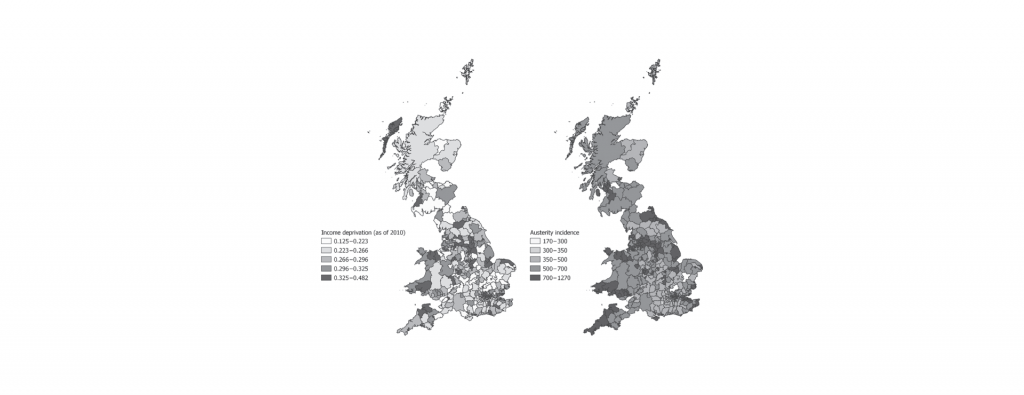Many European countries introduced austerity policies to control rising debt in the wake of the Great Recession of the late 2000s. Recent research suggests that austerity fuelled political polarization, instability, and populism in Europe. However, the motives behind citizens' responses to austerity are not well understood. Using the case of the UK, we study whether preferences for redistribution drive the effect of austerity on political participation in the form of voting, appealing for reform with the government, and protesting. Based on experimental and observational data, we show that individual exposure to austerity increases voting and appealing for reform with the government but not protesting, and changes people's preferences for redistribution. The experimental data show that being exposed to austerity is associated with a 0.128 and a 0.096 unit increase in voting and appealing for reform, respectively. The data also show that exposure to austerity increases preferences for taxing higher incomes and spending more on welfare and social security. This change in preferences explains between 8% and 11% of the effect of exposure to austerity on political participation.
Can Preferences for Redistribution Explain the Impact of Austerity on Political Participation? Evidence from the UK
